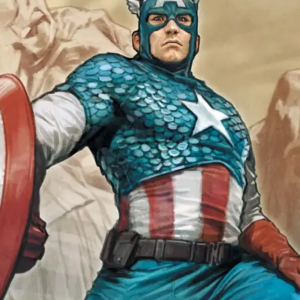
On Abe Lincoln and the Tragic Failure of Reconstruction
David S. Reynolds in Conversation with Andrew Keen on Keen On
The coronavirus pandemic is dramatically disrupting not only our daily lives but society itself. This show features conversations with some of the world’s leading thinkers and writers about the deeper economic, political, and technological consequences of the pandemic. It’s our new daily podcast trying to make longterm sense out of the chaos of today’s global crisis.
On today’s episode, David S. Reynolds, historian and author of Abe, discusses Abraham Lincoln’s legacy and its implications for present-day America.
From the episode:
Andrew Keen: You say that he was a great president. And of course, I’m the last person to argue with you because the last thing I’m going to do is question your knowledge of Abe. But might it be said that America would have been better off if it had split up? That the history of the country since the Civil War has been so riven by racism and one kind of exploitation or another, particularly today, as it stumbles perhaps into a new kind of civil war? That Lincoln’s greatness in unifying the country in the long run really wasn’t beneficial?
David S. Reynolds: Well, what happened was that Lincoln was headed in a very good direction, and he headed the country in a very good direction, because the most important thing was to try to get these two countries back together as one. And at the same time to get rid of slavery.
Andrew Keen: Well he got rid of slavery, but he didn’t get the country back together. It still is divided, perhaps even more divided now than it was in the 19th century. So maybe it would have been better just to let the country split up and each side go its own way.
David S. Reynolds: A lot of people were saying that back then. And what was going to happen was that toward the end of the Civil War, Jefferson Davis, who was the president of the Confederacy, even approached Lincoln through a diplomat and said, let’s just have two countries. And Lincoln said, only if you got rid of slavery. Only if you got rid of slavery would I consider any kind of perpetuation of two different countries or anything like that. And Lincoln was in the dealing hand there. He was like the dealer because he was militarily defeating the South, and the South knew that.
And at the beginning of the war, Lincoln was willing to let slavery to stay where it was, as long as it didn’t extend into—because the South wanted to take over the West and even Mexico and Cuba and everything, and spread slavery. They were really intent on spreading slavery. But the most important thing was that Lincoln saw the fact that the 13th Amendment abolishing slavery was passed; it passed through Congress in January of 1865. So when he died in April 1865, he knew at that point that at least the war was won and that the slaves were emancipated. Now, ideally, what would have happened is that the 13th, 14th, and 15th Amendments, which freed the slaves and gave civil rights to African Americans, would have set the stage then for greater civil rights to come.
What happened, however, is that Reconstruction collapsed. Civil rights died out, and we had Jim Crow America, which appears in the late 1880s and really lasts until about 1954 with Brown v Board. And at that time, you had segregation and then discrimination and so forth. Then you had the civil rights movement and you had LBJ and so forth, and you had an African American president with Barack Obama. So, America has been struggling to regain the sense of civil rights. At this moment, it’s very divided, to be sure. But Lincoln and the Declaration of Independence and the 13th, 14th, and 15th Amendments remain a kind of ideals that we all try to struggle to regain.
________________________
Subscribe now on iTunes, Spotify, Stitcher, or wherever else you find your podcasts!
David S. Reynolds is a Distinguished Professor at the Graduate Center of the City University of New York. He is the author of Walt Whitman’s America: A Cultural Biography, winner of the Bancroft Prize and the Ambassador Book Award. His other books include Beneath the American Renaissance (winner of the Christian Gauss Award), John Brown, Abolitionist, and Mightier than the Sword: Uncle Tom’s Cabin and the Battle for America. He is a regular book reviewer for The New York Review of Books, The New York Times Book Review, and The Wall Street Journal.
Keen On
Hear from the world’s most informed citizens about the rise of populism, authoritarian and illiberal democracy on Keen On, as Andrew Keen investigates the contemporary crisis of democracy.



















